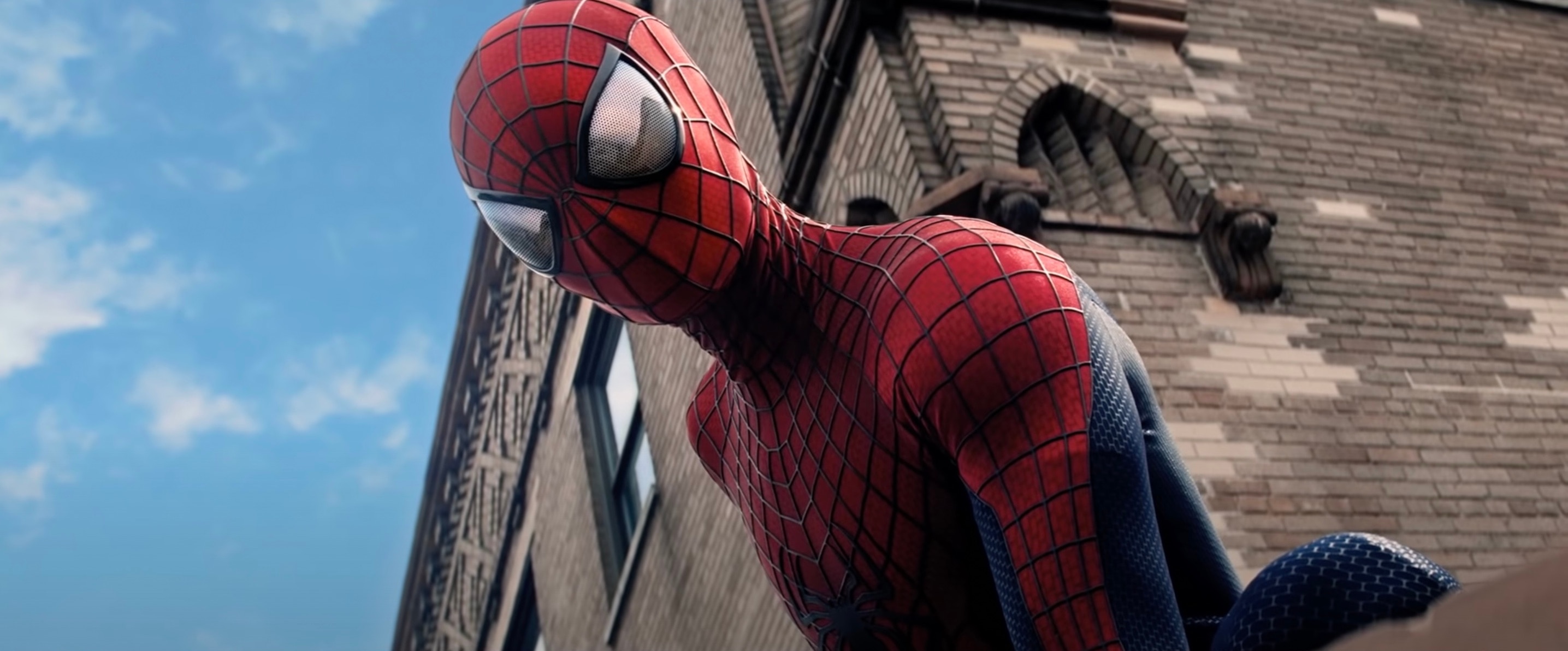


Sometimes the scenes between Peter and Gwen are so intimate you feel like you’ve become a third wheel on a date, but that’s probably a measure of just how successful they are and testament to the strength of Garfield and Stone’s chemistry. The film is at its strongest when it comes to matters of the heart, whether it’s Peter’s complex relationship with Gwen or his increasingly strained relationship with Aunt May. Amazing Spider-Man 2 doesn't succumb – possibly due to Garfield’s likeability – but it’s definitely a growing problem. You’re no longer conscious of just how young he is or the other pressures he is constantly facing – so instead of coming across as immature and unguided, the risks he takes seem all the more reckless and egotistical. When you start to elide those aspects of Parker’s character, using that screen time elsewhere, it ultimately changes your perception of the character and his actions. There’s a pressure being exerted on the film and it loses a bit of focus.

That’s because there’s so much to get through, but also set up for future sequels and spin-offs. We find out he’s started to submit pictures to the Daily Bugle, but he never steps through the doors of that publication. We learn that Peter’s in college, yet never see him actually attend a class. There’s a lot going on, but with a running time of 142 minutes it’s strange that I came away thinking there’s so much Amazing Spider-Man 2 leaves out. Foxx is fine, but the role is misused, the depiction too brash, and he's saddled with one or two cringe-worthy lines that would be more at home in a superhero film from the mid-Nineties. But you never genuinely feel the sympathy towards Electro the film wants you to – he’s a far cry from Alfred Molina’s tragic genius, Doc Ock. That’s not to say the action isn’t great – the Times Square showdown is definitely a stand-out sequence, brilliantly showcasing Spidey’s unique set of powers, especially his spider-sense. But the film lets him down – it doesn’t ever establish him as a central villain, with real motivations, but more as a reason for the film’s set-pieces to exist, and later exists more as Harry’s lackey. The film tries to introduce Max Dillon as a character for whom we should feel sympathy – he’s socially awkward, lonely, unappreciated, and since Spider-Man saved his life, he’s become obsessed with the hero.Īfter an uninspired accident – he falls into a vat of genetically-altered electric eels – the whole world starts to pay attention to Max. Giamatti is limited to cameos, providing short action sequences, but Electro appears throughout the film as a main antagonist, yet the function is very similar. On top of all this, there still needs to be action, of course – enter Paul Giamatti’s Rhino and Jamie Foxx’s Electro.
#THE AMAZING SPIDER MAN 2 MOVIE SERIES#
We eventually discover the truth, though the eventual revelation is in no way proportionate to the amount of mystery the series has already built up around the event. This plunges proceedings back into the mystery surrounding the death of Peter’s parents. Harry is suffering from a degenerative condition and requires Spidey’s blood to stand any chance of survival. We learn he and Peter are old friends, and while this inevitably creates a feeling of deja vu – it’s a problem that such a recent reboot was always going to encounter – DeHaan is so creepy yet appealing as Harry that the relationship between them is as fascinating as ever. The more traditional aspects of the plot are put in motion by Dane DeHaan’s Harry Osbourne, who returns to New York to head up Oscorp.

The whole 'should-they-shouldn’t-they' dilemma of Gwen and Peter’s relationship forms a huge part. There’s a lot going on in Amazing Spider-Man 2, and sadly it doesn’t always come together. Unlike so many superheroes, the identity of Spider-Man doesn’t seem to be a burden but a release for Parker – he’s confident and cocky with his now-honed abilities. But in some ways he’s moved on, graduating high school, enjoying life and really embracing the role of being New York’s protector. Peter is still haunted by the death of Gwen’s father and the promise he failed to keep (to protect his daughter by leaving her alone). Events begin not long after the end of the first film. There’s great action and compelling performances – Garfield is Spider-Man – but there’s also an obvious pressure to rapidly expand the Spider-Man universe that threatens to derail the film at points. The sequel will likely elicit similar reactions. There was a lot to like – Garfield’s take on Spider-Man, for one – but also plenty to remain unsure and sceptical about. Marc Webb’s rebooted Spider-Man was divisive.


 0 kommentar(er)
0 kommentar(er)
